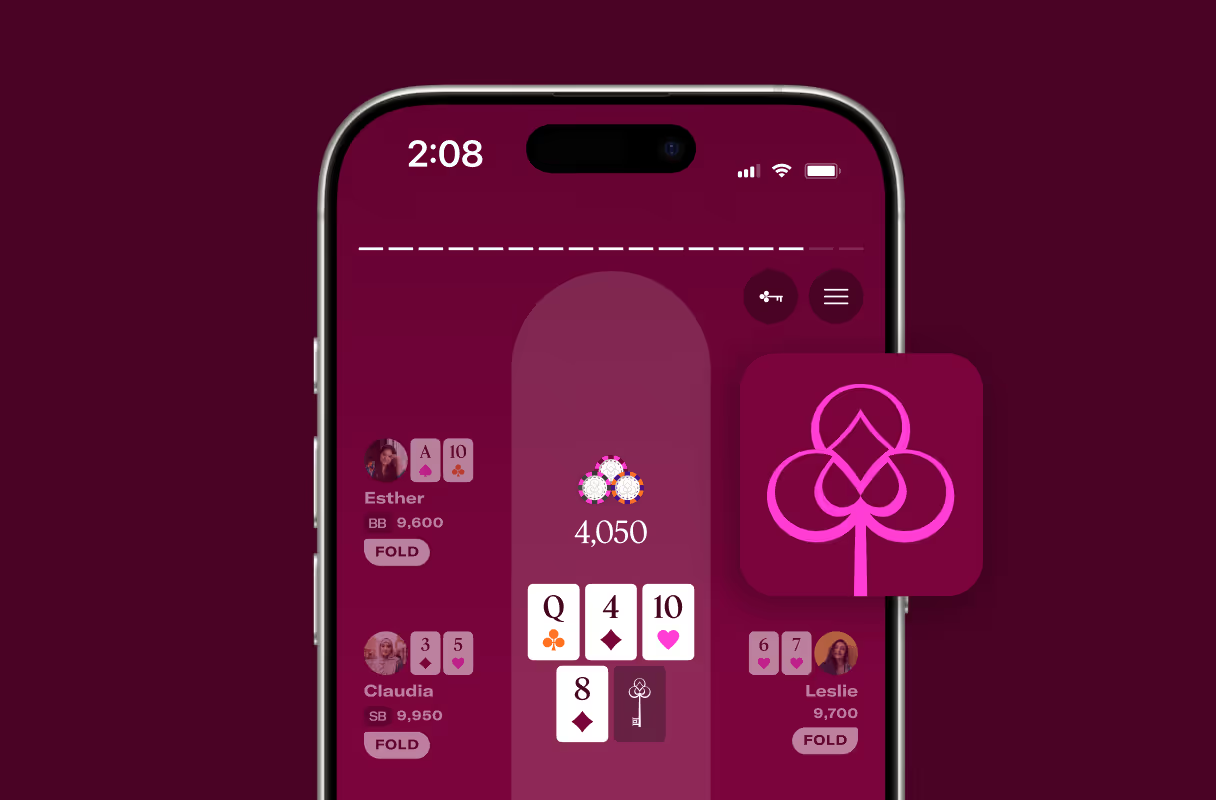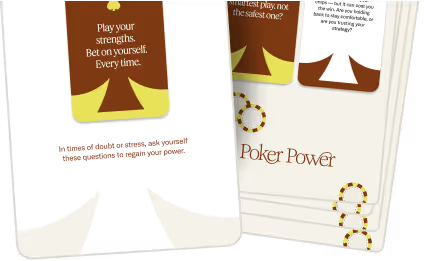
Xuan Liu is one of the most accomplished poker players of her generation. From humble beginnings playing poker with her stuffed animals, to paying her tuition from winnings at college poker nights, to multiple $500,000+ tournament scores in her first year as a professional, she has thrived in poker for a decade.
We had the chance to hop on Zoom with Xuan to hear her thoughts on the upcoming World Series of Poker (WSOP), her experience as an ambassador for poker operators, and how poker has helped her grow as a person.
Poker Power: How do you approach poker commentary and teaching as such a knowledgeable player working with a recreational audience?
Xuan Liu: Depending what language I’m doing commentary in, my analysis can be quite different. Even though Mandarin is my native language, I’m actually more articulate in English. Having said that, I think it’s really important for poker commentary to be accessible to the average viewer, to have it be more digestible, not just for entertainment’s sake, but also to attract a wider audience.
For teaching, most of our students are at a beginner to beginning-intermediate level, so I focus on accessibility even more. One of the most common pieces of feedback I get from my students and people who are close to me is that I probably don’t explain concepts in a simple enough way. When you’ve been in the poker industry for so long, phrases and quotes that you think are standard, everyday vernacular actually aren’t. So I like it when my students check in with me and give me a gentle nudge to speak in everyday language.
Poker Power: With the series right around the corner, how would you describe the feeling of playing at the World Series of Poker to someone who has never been before?
Xuan Liu: There’s nothing quite like it. For a really good description of what it’s like, I’d recommend Maria Konnikova’s book “The Biggest Bluff.” She paints a fantastic picture. There are rows and rows of tables. There is a lot of tension in the air. Sometimes it smells funny. It’s usually freezing, and there are weird vendors trying to sell you something as you’re walking down the halls.
The buy-in process can be kind of confusing, but everyone is there with some cash and a dream. That’s what makes it so beautiful. The main event is the best tournament of the year because for a lot of people it’s their life’s work or their dream to be able to play in this biggest tournament with some of the best players.
You have a huge range of skills in the main event. Since it’s only one tournament, it’s not always the best players who make it deep. There are people from all walks of life sitting together for this one goal of earning a few million dollars. It’s really cool.
First-time players are definitely going to be overwhelmed, but ultimately the game is going to be the same. My advice to them is maybe the day before, study the structure of the tournaments and visualize how your day is going to go, because once you get there, you’ll have so much stimulation in the environment that it’s hard to focus on the game.
Prepare yourself. You’re going to learn a lot of new things about the administrative process. That’s actually one of the biggest edges that pros who come year after year have over the amateurs because they are so familiar with the environment. The top grinders have RVs right outside the Rio that they can just rest and take a break in.
Those of us who can’t afford to have an RV parked outside have no place to unwind and take a break. We have to line up for the washrooms. The days are 12 to14 hours long. It’s a marathon, so try to build up your stamina before you arrive.
Poker Power: In your Job Diary with Business Insider, you say most pros advise against playing for a living. How could someone add poker into their life to get the most out of the game?
Xuan Liu: In my blog I write about how poker is a beatable game that utilizes so many areas of the brain and enhances basically every aspect of decision-making for a player as long as there aren’t financial stressors involved.
If you are using your entertainment money and you have another way to earn your livelihood, then you can treat decisions very objectively and remove a lot of the emotion from the game. The other way around is just reckless gambling, which I don’t support at all. I know a lot of players, myself included, who did not manage their bankroll properly, and it’s very defeating for anyone to have to risk their rent money.
Poker Power: Why did you decide to specialize in tournaments over your career? Do you think poker would have felt less draining if you were able to game-select and set your own schedule by playing cash?
Xuan Liu: Initially, I started playing more tournaments because that was the route to get sponsorship deals and because I thought tournament players were so much worse than cash game players, I would have an edge right away.
My mother had also given me an ultimatum to make something of myself in a year or stop pursuing poker professionally. If I played cash games, even if I were to be up 20bb/100, that was not indicative of success in the game according to my mother, whereas if I had a breakthrough tournament, it was more definitive.
Even though logically it’s probably the opposite because you can just run really hot in a tournament and win something big, whereas grinding it out and having a good win-rate is more indicative of how good you are.
Even though I loved the game, I also saw it as a business decision because of the extra money from sponsorship deals.
Poker Power: How have your poker skills helped you in other areas of your life?
Xuan Liu: I think one of my main strengths in poker is that I’m a very good observer. When I’m playing my “A game,” I’m taking in everything that is happening, I’m feeling everything the other players are feeling. Also my successes in poker have really helped me in other aspects of my life because I derive a lot of my confidence and self-worth from my achievements.
My poker background made a lot of my business decisions and involvements easier. Right now I’m working for World Poker Tour as director of special projects, and, while I’ve never had an executive role, I feel like my poker career has helped me immensely with working through imposter syndrome in this executive capacity. I know not to doubt myself.
Poker Power: How have your involvements with the Global Poker League, Natural 8, 888 and the European Poker Tour changed your perception of the game and the products offered to players?
Xuan Liu: At the end of the day, the people behind poker operators are human. Sometimes they’re not even poker players themselves, so there will be a lot of differing opinions. In general, while I enjoy being a brand ambassador, I’ve always had qualms about pushing gambling to a greater audience. That’s why I love being with Poker Power so much, where the message isn’t about gambling, and, in fact, we don’t offer any real money gambling in our curriculum because it’s about the raw skills that you learn from poker.
I’m lucky all the roles I have had with these companies were pretty empowering. On the EPT players counsel, I felt like they really did care what players had to say. As a smaller company, Natural 8 was also receptive to our feedback.
Like any industry, it’s just about managing expectations. There was definitely a time where I was kind of burnt out and disillusioned by the whole premise of playing poker for a living. But then I took a break and found Poker Power, so I'm all good now.
Poker Power: What do you anticipate women’s involvement in poker to be like in ten years?
Xuan Liu: I do see the numbers of women going up within the field of poker players, not only because women are earning a larger share of household income, but for other pursuits for equality around all levels of society. Women potentially having more time in the future, younger women being told that it’s ok to be competitive, and women with more disposable income — all of these factors are going to help the numbers.
In the long run, I don’t think we’ll ever reach parity, maybe hundreds of years down the road, but I think that’s ok. Five percent is just way too low. Even if it gets to be what it’s like today in Asia, where you’ll see 30% to 40% women in the lower buy-in tournaments, I think that would be very exciting and respectable for our poker industry goals.
Poker Power: What are some reasons for Asia’s higher proportion of women in poker?
Xuan Liu: I think gaming is just more acceptable there, and we learn a wide variety of games. We learn chess and Chinese chess, Go, and Chinese checkers. It doesn’t matter if you’re a boy or a girl, we all learn those games at a pretty young age. Poker is a strategy game just like any of those.
Also it might have to do with math. I think math is way less intimidating with an Asian education because of the way the language is built. For me, learning our multiplication tables was basically like memorizing a song. Each number was just a syllable, and we’d learn that song at two or three years old, and it would just be ingrained in you so when a math problem came up you just think back to that part of the song.
Poker Power: What advice would you give women in business about risk, negotiation, and decisive action?
Xuan Liu: Remember that it’s a probability game. It’s cliche´ but you can’t win unless you try. You might make a bluff and get called, but it’s all a numbers game because X amount of the time you’re not going to get called. As long as the probability of what you’re doing makes sense, then you’re still making the right decision regardless of the outcome.
That works in multiple areas of business, like partnerships, raises, and negotiations. The best thing you can do is be prepared and not be afraid to walk away from a deal. It’s ok to be wrong, just do your best to make decisions with sound logic and reasoning, then don’t worry about what happens. There’s always going to be another hand.
We’ll be cheering on Xuan and many of our other poker instructors as they head to Vegas this week for the World Series of Poker.
If you’re interested in learning how to play poker and connecting with thoughtful women like Xuan, enroll in Poker Power’s community lessons. We’ve saved you a seat, are you ready to learn what the power of poker can do for you?





